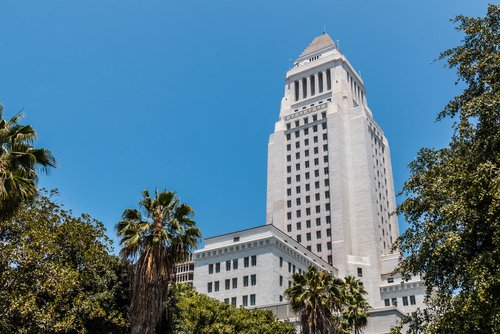
California hernia mesh lawsuits typically involve bringing claims for negligence and products liability against a hernia mesh medical manufacturer. If successful, plaintiffs may be able to recover a large enough settlement to pay for all their expenses, including pain and suffering.
Whenever there are several California plaintiffs suffering hernia mesh injuries from the same products, they may be able to “centralize” their cases in one court by forming a JCCP (judicial council coordinated proceeding). JCCPs are similar to MDLs in that they help speed up the judicial and settlement process. But unlike MDLs, JCCP’s are limited to California cases and take place in state — not federal — court.
In this article, our personal injury attorneys discuss topics related to filing a lawsuit in California for hernia mesh injuries:

1. Claims
Californians injured by a defective medical mesh implant may be able to file a lawsuit in their local California Superior Court courthouse against the medical manufacturer. Common causes of action against medical manufacturers include:
- Negligence: The medical manufacturer breached its duty of care to the patients receiving the mesh and caused them damages.
- Products Liability. The medical manufacturer created a mesh that was defectively designed, defectively manufactured, and/or improperly marketed.
Once the injured party (“plaintiff”) files a claim, the medical manufacturer (“defendant”) will probably file a “motion to dismiss” and/or a “motion for summary judgment” in attempt to get the case dropped. If the judge denies the defendant’s motions, the plaintiff and defendant may try to negotiate a settlement to avoid trial.
2. JCCPs
A JCCP — short for Judicial Council Coordinated Proceedings — is when similar civil lawsuits in different California counties are “centralized” into one court. The primary purpose of centralizing cases into a JCCP is to expedite the legal process and hopefully encourage a settlement between the parties.
JCCPs are especially suited to cases involving defective medical devices, such as mesh implants. Since there are often so many plaintiffs all over the state suffering similar injuries, it may make sense and reduce expense to join forces through a JCCP.
There are two types of JCCPs: 1) Non-complex, and 2) Complex. The main difference is that complex JCCPs require extra attention by the judge to manage the case efficiently.
Note that JCCPs are different than class-actions: Class actions join several plaintiffs into one case; JCCPs merely “coordinate” several plaintiffs into one court, but the cases remain separate.
Bellwether trials

After a JCCP is formed and the pretrial proceedings have passed, the judge may allow some of the individual plaintiffs to go to trial. These “bellwether trials” serve as a predictor of how all the other cases in the JCCP would resolve if they went to trial as well.
Then depending on what happens at these bellwether trials, the plaintiffs and defendants are in a better-informed position to hold settlement talks and avoid the expense of further trials. For instance if the plaintiffs win big in these bellwether trials, the defendants may choose to offer a sizable settlement.1
JCCPs v. MDLs
JCCPs are like the state-level versions of MDLs (short for multi-district litigation). Whereas MDLs join similar lawsuits from around the country into one federal court, JCCPs join similar lawsuits around California into one state court.
Currently there are three active hernia mesh-related MDLs:
- 2:18-md-2846; In Re. C.R. Bard/ Davol, Polypropylene Hernia Mesh Products Liability Litigation, MDL No. 2846 (Judge Edmund A. Sargus, US District Court, Southern District of Ohio)
- 16-md-2753; In Re: Atrium Medical Corp. C-QUR Mesh Products Liability Litigation, MDL No. 2753. (Judge Landya B. McCafferty, US District Court, District of New Hampshire)
- 17-md-2782; In Re: Ethicon Physiomesh Flexible Composite Hernia Mesh Products Liability Litigation, MDL No. 2782 (Judge Richard W. Story, US District Court, Northern District of Georgia)
Hernia mesh JCCPs

Currently there are no active JCCPs in California against hernia mesh manufacturers, but that may change soon as more and more injured patients pursue lawsuits.
In 2017, a JCCP regarding injuries from Caldera Medical‘s transvaginal mesh implant resulted in a $10.58 million settlement that was distributed among 2,710 plaintiffs. The name of this case is:
- Re. Transvaginal Mesh Litigation (JCCP #4733) in the Superior Court of the State of California for the County of Los Angeles.
3. Damages
Whether a hernia mesh case is joined in a JCCP or not, the plaintiffs’ attorneys would fight for a high enough settlement to cover the plaintiffs’ hernia mesh “compensatory damages”:
- past and future medical bills (including physical therapy, psychiatry, and home health care);
- past and future lost wages; and
- pain and suffering
Should the case reach trial and result in the plaintiff’s favor, the jury could also award large punitive damages for the sole purpose of punishing the medical manufacturer for its illegal actions. Punitive damages are also meant to deter others from doing the same misdeeds. In many cases, punitive damages can be much larger than compensatory damages.
4. Hiring a personal injury attorney

If you have been implanted with a defective mesh, we welcome you to call our legal team at Shouse Law Group to discuss your options free of charge. Whether your case is centralized into a JCCP or an MDL or remains separate, our skilled attorneys have a singular purpose: To investigate, litigate, and negotiate your matter in an effort to achieve the highest financial settlement possible.
Certainly, no amount of cash can magically cure what the medical manufacturers have done to your body. And no amount of cash is worth the emotional trauma your injuries have caused you and your loved ones.
But medical manufacturers owe you when they break the law, and a financial reward can help ease the burden of your bills and expedite your road to healing. We are here to try our best to take the medical manufacturers to task to help you get on with your life.
Our personal injury services are risk-free to you. You pay us nothing unless we win your case. So for a free phone consultation and case evaluation, do not hesitate to phone our legal team.
We are here for you twenty-four hours a day, seven days a week. Please do not to wait too long to call. We may be up against a strict statute of limitations in hernia mesh cases, which is often as little as two (2) years from the date of injury. And we never want the law to let liable medical manufacturers off the hook just because too much time has gone by.
Legal References
- California Rules of Court 3.4; Civil Case Coordination, California Courts, The Judicial Branch of California; Civil Case Coordination Fact Sheet, Judicial Council of California; Helen E. Zukin, Demystifying complex-case coordination, The Advocate (February 2017).
